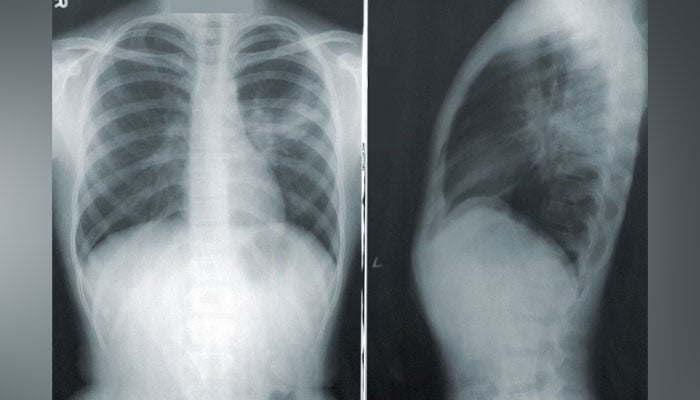New study reveals cancer patients can live with this drug
Researchers look at whether pill could help non-small cell lung cancer patients, the most common form of disease
June 04, 2023

Scientists have concluded that taking osimertinib drug daily after surgery can drastically reduce the risk of dying from lung cancer by 51%, according to a new decade-long study.
The results of the study — led by Yale University — were presented before the world’s largest cancer conference American Society of Clinical Oncology’s (ASCO) annual meeting in Chicago.
Lung cancer causes about 1.8 million deaths annually, making it one of the world’s leading causes of death.
Dr Roy Herbst, the lead author and the deputy director of Yale Cancer Center said: "Thirty years ago, there was nothing we could do for these patients. Now we have this potent drug. 50% is a big deal in any disease, but certainly in a disease like lung cancer, which has typically been very resistant to therapies."
The trials involved people aged 30 and 86 in 26 countries. Researchers looked at whether the pill could help non-small cell lung cancer patients, the most common form of the disease.
Participants in the study had a mutation of the EGFR gene — found in about a quarter of global lung cancer cases, and accounts for as many as 40% of cases in Asia.
The mutation is regarded as more common in women and in those who did not smoke or have been light smokers.
Herbst said while speaking in Chicago that the “thrilling results added huge weight to earlier findings from the same trial that showed the pill also halves the risk of a recurrence of the disease."
Herbst noted: “The pill was proven to be practice-changing and should become the standard of care for the quarter of lung cancer patients worldwide with the EGFR mutation.”
Herbst, who is the assistant dean for translational research at Yale School of Medicine, said some patients in the UK, US and other countries are "already able to access the drug but more should benefit."
He went on to argue that not everyone diagnosed with lung cancer is tested for the EGFR mutation, which needs to change given the study’s findings.
"This further reinforces the need to identify these patients with available biomarkers at the time of diagnosis and before treatment begins," he added.
Participants are alive
According to the report, treatment after "surgery with osimertinib, also known as Tagrisso and made by AstraZeneca, significantly lowered the risk of death in lung cancer patients, the trial results reported."
"Adjuvant osimertinib demonstrated an unprecedented, highly statistically significant and clinically meaningful overall survival benefit in patients," the report noted.
The study noted that 88% of participants who took the pill daily after surgery were alive compared with 78% of patients treated with a placebo.
Overall, there was a 51% lower risk of death for those who received osimertinib compared with those who received a placebo, according to the research.
The survival benefit "was observed consistently in analysis across all study subgroups, including those with stage one, stage two and stage three lung cancer."
Chemotherapy had been given to 60% of the patients, and the survival benefit of osimertinib was seen without taking into account previous chemotherapy records.
Dr Nathan Pennell, an Asco expert who was not involved with the study noted that "it is hard to convey how important this finding is and how long it’s taken to get here. This shows an unequivocal, highly significant improvement in survival."
In the trials, 682 patients were women and two-thirds of patients were non-smokers which suggested the pill works for smokers and non-smokers diagnosed with lung cancer.
Angela Terry, the chair of EGFR Positive UK, said: "The findings were very exciting and hugely significant."
"A five-year overall survival rate of 88% is incredibly positive news," she said.
"Having access to a drug whose efficacy is proven and whose side-effects are tolerable means patients can be confident of and able to enjoy a good quality of life for longer."











